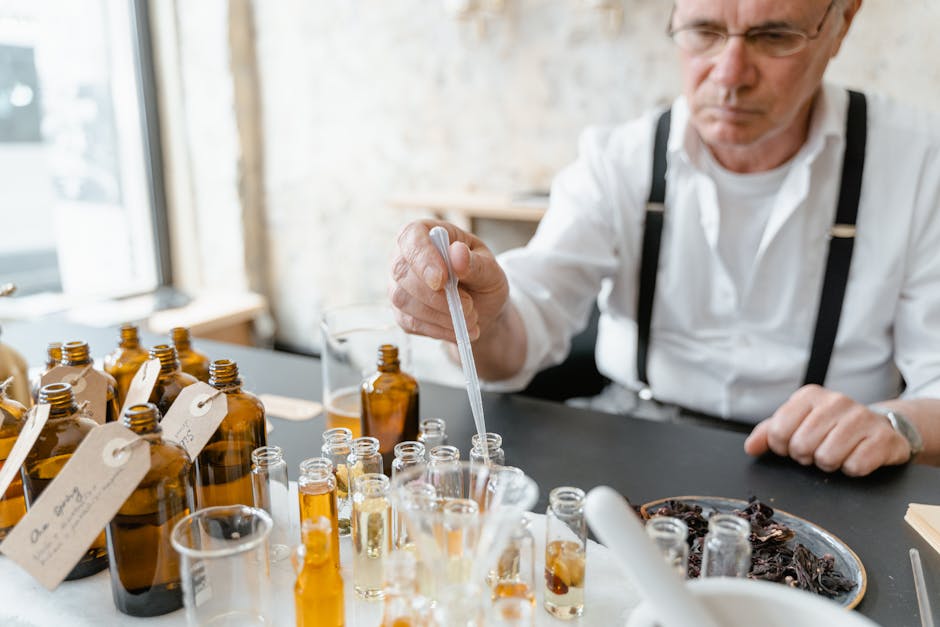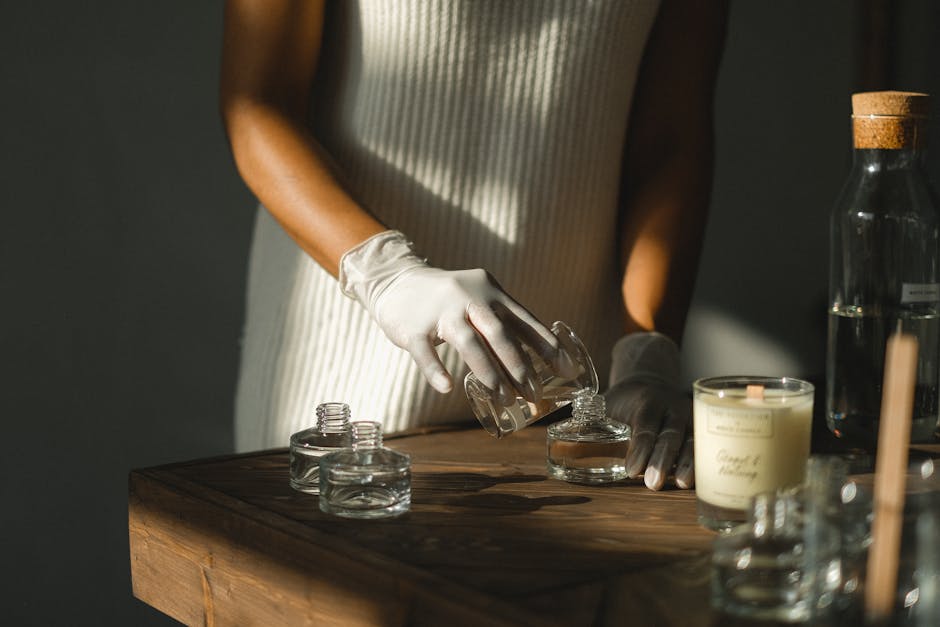Unraveling Aromatherapy's Enigma: Beyond the Simple Scent
While the olfactory artistry of aromatherapy conjures visions of serene sanctuaries and instantaneous stress dissipation, a rigorous, evidence-based examination is paramount. The placebo response, that potent phenomenon where conviction in a treatment yields a perceived amelioration, undoubtedly plays a significant part. However, to relegate aromatherapy solely to the realm of placebo effects is a gross oversimplification; let's delve into the substantiated data.
Hormonal Modulation: Scientific investigations indicate that certain essential oils can subtly influence endocrine function. Lavender, for example, has demonstrated, in select studies, a correlation with diminished cortisol—the body's primary stress hormone. Yet, the extent of these hormonal shifts and their consistency across diverse populations warrant further, comprehensive research. Individual responses vary considerably, necessitating a discerning approach to such claims.
Neurological Pathways: A Direct Line to Emotion: Inhaled aromatic compounds engage olfactory receptors within the nasal passages, triggering a cascade of neural signals directly to the limbic system—the brain's emotional epicenter, governing memory and autonomic functions. This rapid, subcortical pathway circumvents conscious cognitive processing, potentially explaining the immediate effects many individuals report. The aromatic stimulus elicits a physiological reaction before conscious perception fully registers the olfactory input. This isn't to diminish the perceptual experience, but rather to highlight the immediacy and potency of the response, transcending simple cognitive associations.
Clinical Applications: Promise and Prudence: While aromatherapy cannot supplant conventional medicine, preliminary research suggests potential adjunctive benefits within specific clinical contexts. Lavender oil, for instance, shows promise in ameliorating sleep disturbances in individuals experiencing mild insomnia. Nevertheless, these studies often suffer from methodological limitations: small participant cohorts, inadequate controls, and inconsistent essential oil extraction and administration protocols. Substantial further research is needed before broad clinical adoption can be ethically considered.
The Placebo Paradox: A Double-Edged Sword? The placebo response is not inherently "negative;" it underscores the remarkable mind-body interconnectedness. The sheer belief in a treatment's efficacy—be it a saccharine placebo or a drop of lavender—can initiate measurable physiological alterations. This understanding empowers us to fashion more effective therapeutic interventions, consciously harnessing the placebo effect rather than dismissing its undeniable influence.
Beyond the Vial: Purity and Potency: Essential oil quality is non-negotiable. Many commercially available products are diluted, adulterated, or contain synthetic odorants. Selecting high-quality, certified pure therapeutic-grade oils is imperative to maximizing potential benefits and minimizing any associated risks. Consider the stark contrast between a skillfully crafted vintage and its cheaply made imitation; the sensorial experience, and resulting effects, are profoundly different. For more information on choosing pure essential oils, check out our guide on 100% Pure Essential Oils: The Hidden Science of Scent & Your Subconscious.
The Mind-Body Symphony: A Holistic Approach
Aromatherapy's efficacy transcends its mere chemical composition. Individual beliefs, anticipations, and affective states profoundly influence the outcome. This emphasizes the importance of a holistic, integrated approach. The very experience of aromatherapy—the ritualistic application, the atmospheric ambience, the mindful intent—significantly augments its potential effectiveness.
Envision a long-distance runner: rigorous training, meticulous nutrition, and diligent physical preparation are undoubtedly critical. But the runner's mental fortitude, their unwavering conviction in their ability to succeed, plays an equally vital role in achieving their objective. Likewise, the experiential aspects of aromatherapy, the conscious intention behind its use, and the belief in its efficacy directly influence the overall therapeutic outcome.
Actionable Strategies for Enhanced Well-being:
- Mindful Application: Don't simply disperse the oil and disregard it. Cultivate a contemplative atmosphere—soften the lighting, introduce soothing soundscapes, and consciously focus on the aroma and its intended effects.
- Personalized Exploration: Experiment with various essential oils and application methods (diffusion, cutaneous application, direct inhalation) to identify what resonates most effectively with your individual constitution. A calming scent for one person may prove invigorating for another. Learn more about how carrier oils can enhance your essential oil experience in Unlocking Your Skin's Potential: The Unexpected Carrier Oil-Essential Oil Synergy You Need to Know.
- Realistic Expectations: Aromatherapy provides complementary support, not miraculous cures. Instead of anticipating dramatic transformations, focus on achieving subtle shifts in mood and overall well-being.
- Evidence-Informed Selection: Thoroughly research the oils you utilize, understanding their purported properties and inherent limitations. Consult a qualified aromatherapist for individualized guidance, particularly if you have pre-existing health concerns.
- Quality Control: Invest in premium essential oils from reputable vendors. Verify certifications and purity standards before purchase.
Navigating the Aromatic Labyrinth: A Mindful Approach to Aromatherapy
The burgeoning popularity of aromatherapy presents a fascinating dichotomy: immense therapeutic potential juxtaposed with a sea of unsubstantiated assertions. This necessitates a rigorous, evidence-based approach; a balanced perspective that acknowledges both the profound sensory benefits and the inherent limitations of this ancient practice. We must cultivate discerning judgment.
Tempting, aren't they? Those idyllic marketing visuals, whispering promises of immediate serenity and stress evanescence. Yet, succumbing solely to alluring promotional narratives, devoid of a robust scientific foundation, risks disillusionment, and potentially, adverse effects. Improper application or disregarding pre-existing medical conditions can have repercussions. Consider the ephemeral nature of countless "miracle" weight-loss fads—a parallel to the need for critical evaluation in aromatherapy's burgeoning market. For those interested in the creative potential of essential oils, you might find Unlocking Your Inner Alchemist: How Essential Oil Aromas Can Transform Your Creative Process insightful.
A Prescriptive Guide for the Discerning User:
-
Demand Empirical Validation: Anecdotal evidence, while compelling in its intimacy, lacks the rigor of peer-reviewed research. Seek out substantiated findings, understanding that even within published studies, limitations in scope and methodology are possible. Scrutinize the data. Be sure to check out our article on Diffuser Deception: Unmasking the 2025 Best Essential Oil Diffusers (And the Marketing Myths) to avoid common pitfalls.
-
Seek Expert Counsel: Individuals managing pre-existing health vulnerabilities should seek consultation from a licensed medical practitioner or a registered aromatherapist before initiating essential oil use. Certain oils may yield unexpected interactions with medications or exacerbate underlying conditions. Prioritize safety.
-
Transparency as a Guiding Star: Exercise caution regarding vendors proffering hyperbolic or unsubstantiated efficacy claims. Opt for companies exhibiting full transparency in their sourcing and production methodologies – traceability matters.
-
Prudent Application is Paramount: Essential oils are potent botanical extracts. Handle them judiciously, adhering strictly to recommended dilution ratios and ensuring they're stored safely away from children and animals. Safety protocols must be upheld.
-
Embrace Personal Nuances: Individual responses to aromatherapy are profoundly unique. Cultivate patience and engage in experiential exploration to identify the oils and applications that best resonate with your specific physiology and preferences. Remember, efficacy is subjective.



